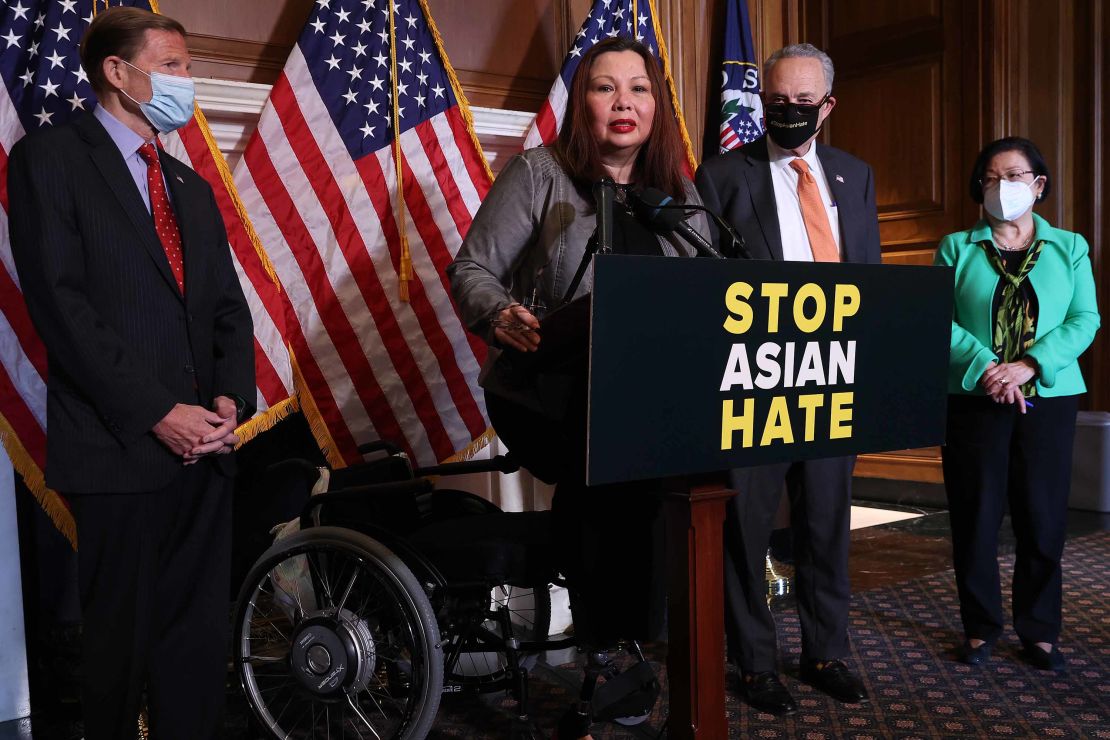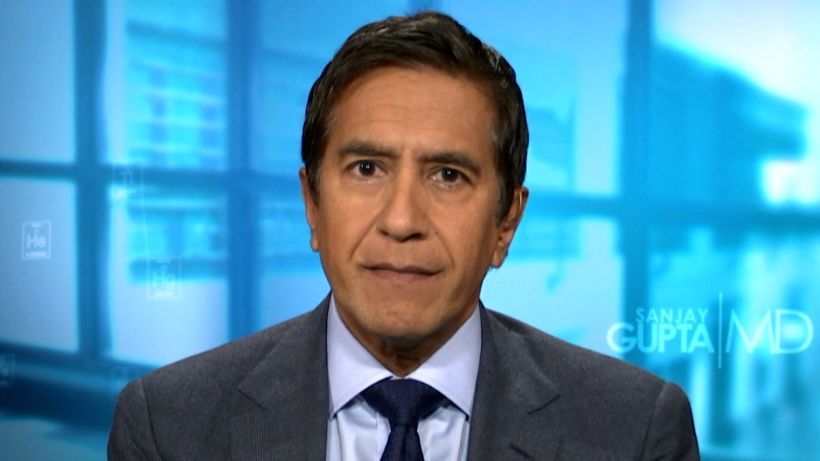A version of this story appeared in the April 23 edition of CNN’s Coronavirus: Fact vs. Fiction newsletter. Sign up here to receive the need-to-know headlines every weekday.
Studies have shown that several vaccines are highly effective in preventing people getting seriously ill from Covid-19. Now, early results from a survey in the UK suggest two commonly used vaccines – the Pfizer-BioNTech and AstraZeneca shots – can significantly reduce infections.
Twenty-one days after the first vaccine, odds of a new Covid-19 infection were reduced by 65%, according to results from the COVID-19 Infection Survey, coordinated by the University of Oxford, the Office of National Statistics and the Department for Health and Social Care. The largest reductions in odds were seen after a second dose, it said.
The numbers appeared more promising for the prevention of symptomatic infections. The odds of testing positive and self-reporting symptoms were reduced by 90% after the second dose. And vaccination was just as effective in the vulnerable over-75 age group as it was in younger people.
Two studies highlighting the results were posted Friday as pre-prints and have not been peer-reviewed. They analyzed 1.6 million test results from nose and throat swabs taken from more than 373,000 people between December and the start of April.
“These real-world findings are extremely promising and show our historic vaccination program is having a significant impact across the UK by reducing infections among people of all ages, including those with underlying health conditions,” said James Bethell, a UK health minister.
But experts advise people to continue with Covid-19 prevention measures, as some infections will still be transmitted, particularly when large numbers of the population have had just one dose in a two-dose regimen or haven’t been vaccinated at all.
YOU ASKED. WE ANSWERED.
Q. Do we still need to wear a mask outdoors?
A. Different countries have different rules on this one, and even different US states have different rules. You should generally follow the guidance where you live. But as the weather in the northern hemisphere warms, some people are wondering how long they must keep their masks on.
CNN Chief Medical Correspondent Dr. Sanjay Gupta says: “If you’re vaccinated, I’d say for the most part, you don’t need to wear a mask outdoors.” That’s because it’s known most viral transmission doesn’t happen outdoors.
Current guidance from the US Centers for Disease Control and Prevention makes it clear masks might not be needed outside. “Masks may not be necessary when you are outside by yourself away from others, or with people who live in your household,” it says. You might want to wear one if you are in a crowded place outdoors.
A November review in the Journal of Infectious Diseases found that the odds of viral transmission are 18.7 times greater indoors than out, and fewer than 10% of Covid-19 infections studied occurred outside. Here are more details to help you make an informed choice.
Send your questions here. Are you a health care worker fighting Covid-19? Message us on WhatsApp about the challenges you’re facing: +1 347-322-0415.
WHAT’S IMPORTANT TODAY
Countries limit flights as India’s Covid crisis deepens
Just six weeks ago, India’s Health Minister declared that the country was “in the endgame” of the Covid-19 pandemic. On Friday, India reported 332,730 new cases, recording for the second day in a row the world’s highest single-day number of new cases since the pandemic began.
India’s second wave has devastated communities and hospitals across the country. Everything is in short supply – intensive care unit beds, medicine, oxygen and ventilators. Bodies are piling up in morgues and crematoriums, Jessie Yeung, Manveena Suri and Swati Gupta write.
And other countries are slowly turning Indians away. The United Arab Emirates, Australia and New Zealand have all curbed incoming flights from India. Australia is even limiting the number of its own citizens who can return from the nation.
Germany ‘emergency brake’ law to lock down almost entire country
German Chancellor Angela Merkel’s government will wield its newfound powers to implement an “emergency brake” – or lockdown – on much of the country from Saturday, Health Minister Jens Spahn said Friday. Only a few municipalities with low infection rates will avoid the measures.
The lockdown will come just two days after Germany’s upper house of parliament rubber-stamped a controversial new law that gives the national government power to impose lockdowns on states for the first time, ending the patchwork, state-by-state approach to addressing the pandemic.
The law allows the government to impose curfews between 10 p.m. and 5 a.m., as well as limiting private gatherings, sports and shop openings, in all areas registering more than 100 cases per 100,000 residents in one week. Schools will close and return to online lessons if the virus incidence exceeds 165 cases per 100,000 residents.
WHO lists rare blood clots as side effect of AstraZeneca’s vaccine
The World Health Organization (WHO) on Thursday joined UK and European health regulators in updating its guidance to include the risk of a severe blood clot condition as a rare potential side effect in people who received the shot. But the organization says the benefits of the vaccine still outweigh the risks.
WHO’s expert advisory group on immunization acknowledged reports of a rare condition called thrombosis with thrombocytopenia syndrome (TTS) – which involves serious blood clots by low counts in blood platelets – from the United Kingdom and European Union.
Guidance from the UK suggests the risk of TTS is about 4 cases per 1 million – or 1 in 250,000 – while the rate is estimated to be about 1 case per 100,000 in the European Union, the group noted, saying that more data collection and analysis was needed. The UK has advised people under 30 be offered an alternative vaccine, saying data shows that currently the risks are higher than benefits for that age group. Some other European nations are not using the shot in people aged under 50 or 60.
ON OUR RADAR

- The Senate passed a bill denouncing discrimination against Asian communities in the United States, and creating a new position at the Justice Department to expedite reviews of potential Covid-19-related hate crimes.
- Music promoter Shuki Weiss in Israel is celebrating. “Each show which we have announced in the last 14 days was sold out in like four or five hours,” he says, as Israel reports as few as 100 Covid-19 infections a day.
- Russia has detected new variants in the country, including a Siberian mutation, as well as what it calls a “northwestern variant,” Russia state media reported.
- Mexican officials are trying to crack down on the sale of fake Covid-19 vaccines after Pfizer said it identified counterfeit shots bearing its name in the country, as well as Poland.
- A fifth Iraqi lawmaker, Adnan al-Aassadi, has died of Covid-19 complications since the start of the pandemic, following the easing of restrictions in the country.
TODAY’S PODCAST
“Masks work and testing works. Contact tracing works. We have 507 people here and we were able to manage it, just doing that: testing, isolation and contact tracing.” — Filmmaker and actor Tyler Perry.
Perry is receiving an honorary Academy Award this weekend, so for today’s podcast, we revisit a conversation between CNN’s Chief Medical Correspondent Dr. Sanjay Gupta and Perry about the quarantine bubble he set up at his studio in Atlanta last summer. They talk about how Perry built his bubble and successfully restarted production without any positive Covid-19 cases on set, and what the experience was like on the inside. Listen now.

















